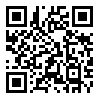مجله رویش روانشناسی از دادن گواهیهای کاغذی معذور است. لطفا تقاضا نکنید. همه گواهی ها در صفحه شخصی کاربران موجود است.
year 13, Issue 6 (summer 2024 2024)
Rooyesh 2024, 13(6): 41-52 |
Back to browse issues page
Download citation:
BibTeX | RIS | EndNote | Medlars | ProCite | Reference Manager | RefWorks
Send citation to:



BibTeX | RIS | EndNote | Medlars | ProCite | Reference Manager | RefWorks
Send citation to:
Hosseinzadeh Dashti M, Salehi K, Keshavarz Afshar H, Javadipour M. (2024). A systematic review: Investigating the psychological damage of Iranian children in parental divorce. Rooyesh. 13(6), 41-52.
URL: http://frooyesh.ir/article-1-4856-en.html
URL: http://frooyesh.ir/article-1-4856-en.html
1- Ph. D. Student of Counseling, Counseling Department, Research Sciences Unit, Islamic Azad University Tehran, Iran.
2- Associate professor, Department of Curriculum Development & Instruction Methods, Faculty of Psychology and Education, University of Tehran, Tehran, Iran. ,Kayvansalehi@ut.ac.ir
3- Associate professor, Department of Counseling and Educational Psychology, Faculty of Psychology and Education, University of Tehran, Tehran, Iran.
4- Associate professor, Department of Curriculum Development & Instruction Methods, Faculty of Psychology and Education, University of Tehran, Tehran, Iran.
2- Associate professor, Department of Curriculum Development & Instruction Methods, Faculty of Psychology and Education, University of Tehran, Tehran, Iran. ,
3- Associate professor, Department of Counseling and Educational Psychology, Faculty of Psychology and Education, University of Tehran, Tehran, Iran.
4- Associate professor, Department of Curriculum Development & Instruction Methods, Faculty of Psychology and Education, University of Tehran, Tehran, Iran.
Abstract: (2601 Views)
Divorce of parents is a fateful and risky incident in a child's life. The present study seeks to identify and classify the psychological injuries of divorced children. For this purpose, 3296 documents were retrieved from the Iranian scientific databases including Magiran, SID, Noormags, and Ensani from 2006 to 2023. Then, using the CASP evaluation checklist, 26 documents were selected and analyzed. The findings led to the extraction of 42 criteria to explain the psychological damage of children of divorce, and its classification in the form of 2 intrapersonal (26 criteria) and interpersonal (16 criteria) dimensions. Among the identified criteria, children of divorce are more likely to face a decrease in mental health and self-esteem and an increase in anxiety, anger, and aggression, and they suffer from problems such as incompatibility, depression, sadness, isolation, and loneliness. These psychological injuries are the source of many social problems and dysfunctions, and lack of attention can cause double risks. The continuation of the alarming, exponential and sometimes exponential trend of divorce statistics and the continuation of the current approaches, decision-making, decisions, and actions, which are mainly formal, passive, reactive, insular, and fragmentary, can not only face serious risks to individual and family health but also the foundation of Islamic culture. It brings double damage to Iran in terms of public and national security. It seems that the continuation of this dangerous trend is the biggest soft threat to society, which seriously threatens the foundation, health, growth, and stability of Islamic-Iranian culture.
Keywords: Psychological Injuries, Consequences of Parental Divorce, Children Of Divorce, Systematic Review.
Type of Article: systematic review |
Subject:
counseling
Received: 2023/09/19 | Accepted: 2024/06/16 | ePublished: 2024/08/31
Received: 2023/09/19 | Accepted: 2024/06/16 | ePublished: 2024/08/31
Send email to the article author
| Rights and permissions | |
 |
This work is licensed under a Creative Commons Attribution-NonCommercial 4.0 International License. |





